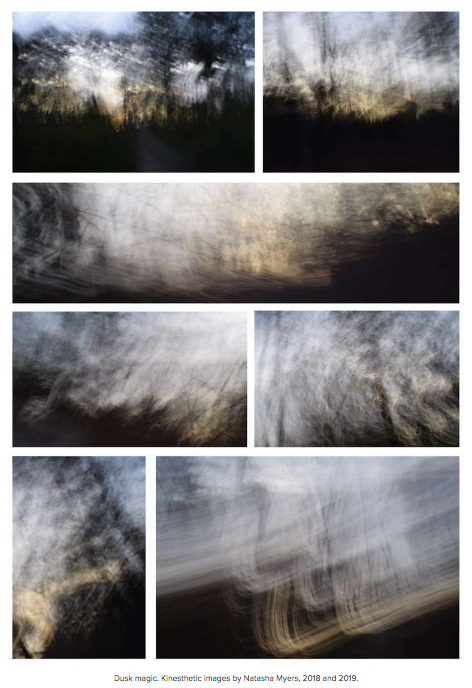The stream is back up and running now! We've jumped right into loop 3 of the panel "Distribute(d) Unequally: Food Stories from Cape Breton Island · Distribución desigualdad: Historias de alimentos de la isla de Cape Breton" #Distribute2020
https://twitter.com/culanth/status/1258922130546331649
We apologize for the disruption and want to remind everyone that all panels from the conference will remain accessible on the website after today. We encourage you to catch what we've missed! I (@scott_a_ross) will pick up tweeting the supergroup from here. #Distribute2020
This panel featured @LeighPotvin, Erna MacLeod, and Emma Jerrot discussing food research in rural Cape Breton Island, looking at inequitable distribution of wealth and resources in Canada and food activism as a response, including the Good Food Bus. #Distribute2020
Going on now at #Distribute2020: "Take Care of Your “Clothes”: Exchange, Circulation and Redistribution"
/"Cuide su “ropa”: Intercambio, circulación y redistribución" panel exploring the economic & moral aspects of clothing re/distribution in Greece during the humanitarian crisis
/"Cuide su “ropa”: Intercambio, circulación y redistribución" panel exploring the economic & moral aspects of clothing re/distribution in Greece during the humanitarian crisis
First up, Elina Kapetanaki is presenting now on gift relations and the exchange of clothes among women in the historical center of Thessaloniki, highlighting specific women's experiences, biographies, and exchange practices #Distribute2020
Women's acts of giving clothes signify forms of charity, relation-building in the context of humanitarian refugee camps in Greece. #Distribute2020
Up next is Joy Al-Nimri discussing her undergraduate thesis research in the Hotspot Refugee Camp in Samos, looking at
a charity's efforts (and obstacles) to distribute clothing there. #Distribute2020
a charity's efforts (and obstacles) to distribute clothing there. #Distribute2020
Discussing how the humanitarian conceptions of recipients renders them without choice or dignity—"beggars can't be choosers"—such that refugees have little say over what they receive. Some charities have tried to give refugees opportunity to make and sell clothes #Distribute2020
Now wrapping up this clothing panel is Eleni Sideri, looking at the solidarity economy of clothing distributions are transformed into commodities through refugee labor. Sideri asks if this is a new "solidarity commodity" #Distribute2020
Sideri looks at different initiatives in Thessaloniki like the NAOMI Project, a refugee center that offers classes and resources the skills and capital to repurpose cloth, or Eklektic, a co-op serving the community under the principle of equity and solidarity. #Distribute2020
The bags refugees create carry names that emphasize where the bags' value comes from—their makers' status as refugees. These bags are commodities premised on solidarity. #Distribute2020 

Now kicking off the 3rd and final panel of this supergroup on material (re)distributions! @Janine_PSantos, @NataliaBuier, and @AlexandraOanca presenting on infrastructures in Lomé, Spain, and Brussels respectively. #distribute2020
Setting the scene, @AlexandraOanca notes that infrastructures distribute people, goods, ideas, and imaginaries, they organize time and space, and are highly political (they distribute unevenly) #distribute2020
1st is @Janine_PSantos presenting on digital infrastructures in Lomé, Togo as crucial sites of power and contestation. Ideals of infrastructure rely on access to hardware and resources, which are uneven. But Togolese govt imagines a financial and logistical future #Distribute2020
The opportunities of start-ups are hamstrung by lack of equitable access to hardware and expertise. Santos spent time with hackers/makers who democratize technology by sharing manuals in whatsapp groups, repurposing e-waste, and reclaiming agency in tech #Distribute2020
Santos situates tech hacking in the broader context of second-hand economy and informal markets, as resellers and repairers make mobile phones more accessible. #Distribute2020
Up next is @NataliaBuier looking at extractive operations and inverse redistribution in Spain's high-speed rail. What kind of processes of redistribution can we observe in the process of high-speed rail? #Distribute2020
Buier distinguishes btwn strategies of how it is financed and broader question of who bears costs, stating that Spain's high-speed rail is debt-financed and state-funded. What kinds of redistributive processes are occurring here? #Distribute2020
If we privilege the role of Madrid as a central node in global capital, we see that this is a project of inverse redistribution and extractive operation, processes of incorporation and exclusion #Distribute2020
Lastly, we have @AlexandraOanca talking about elite geographies and infrastructures in Brussels, from a case study of Trams 39 and 44, which run eastwards through affluent neighborhoods. How do these lines speak to Brussels' postwar and colonial histories? #Distribute2020
The beginning and end of these tram routes signify WWII (Montgomery station) or colonial (Parc Tervuren) histories for Belgium. Oanca also highlights affective colonial dreams of Leopold and racial segregation of Brussels' communes. #Distribute2020
Tram 44 linking Montgomery to Tervuren brings colonial projects of Leopold—the Parc du Cinquantenaire and Palace of the Colonies—closer to the city (along an aesthetically lauded route of mansions built from Congo's wealth). Infrastructures shape time and space #Distribute2020
Please join our panelists to talk foodways, clothes exchanges, and infrastructures in the zoom hallway. Thanks for joining the supergroup panel on material re-distributions! #Distribute2020
• • •
Missing some Tweet in this thread? You can try to
force a refresh








